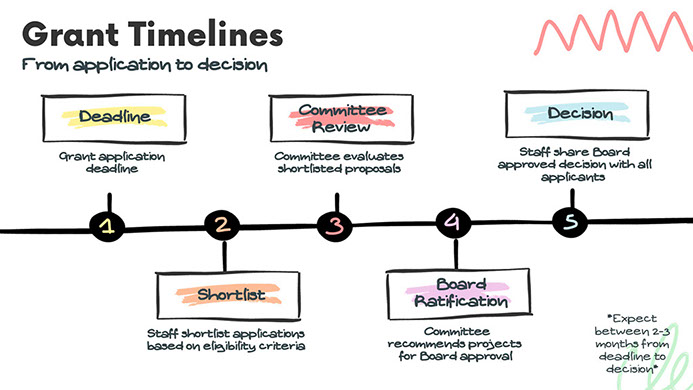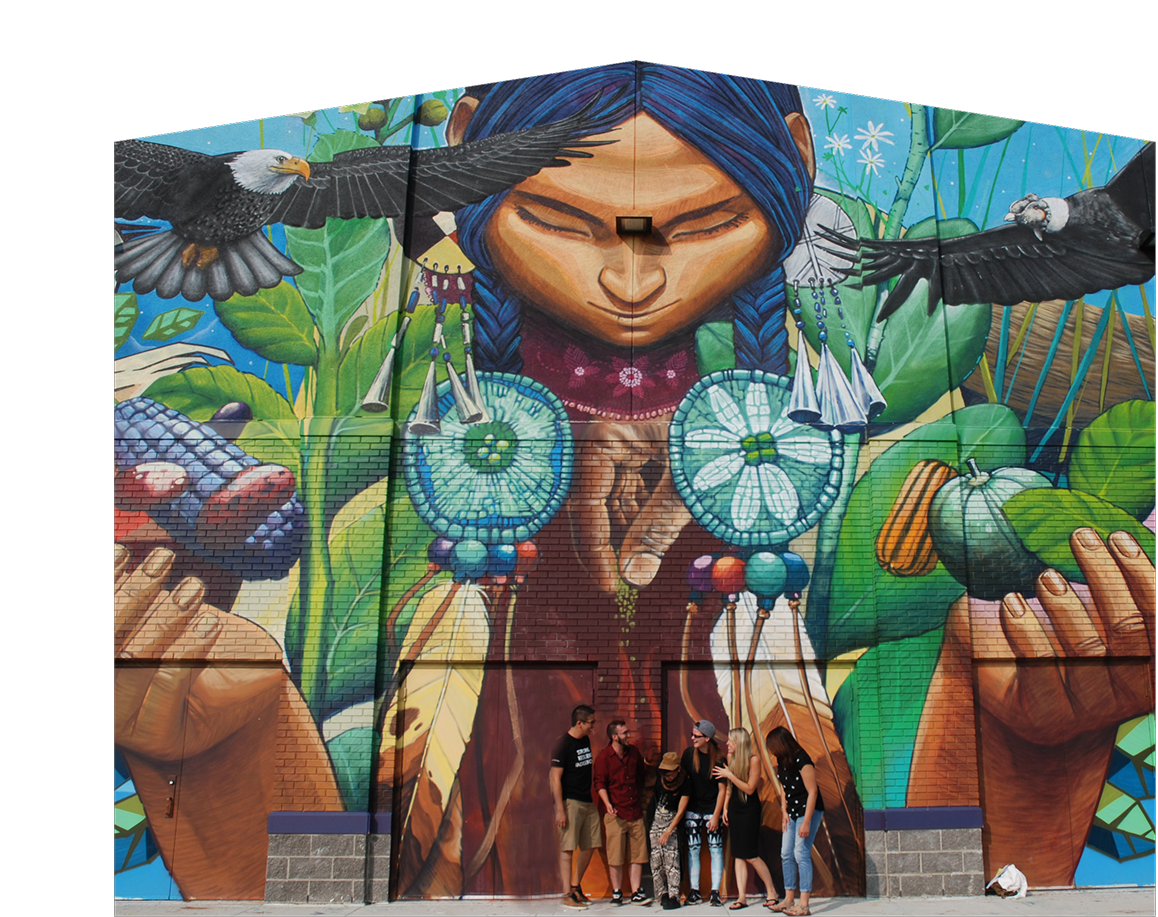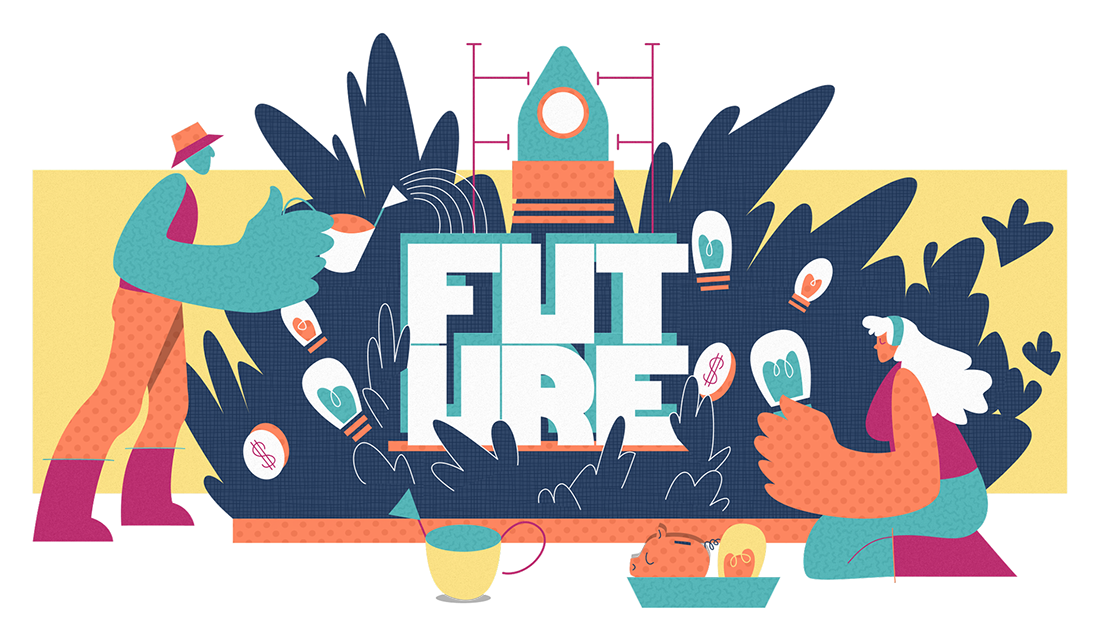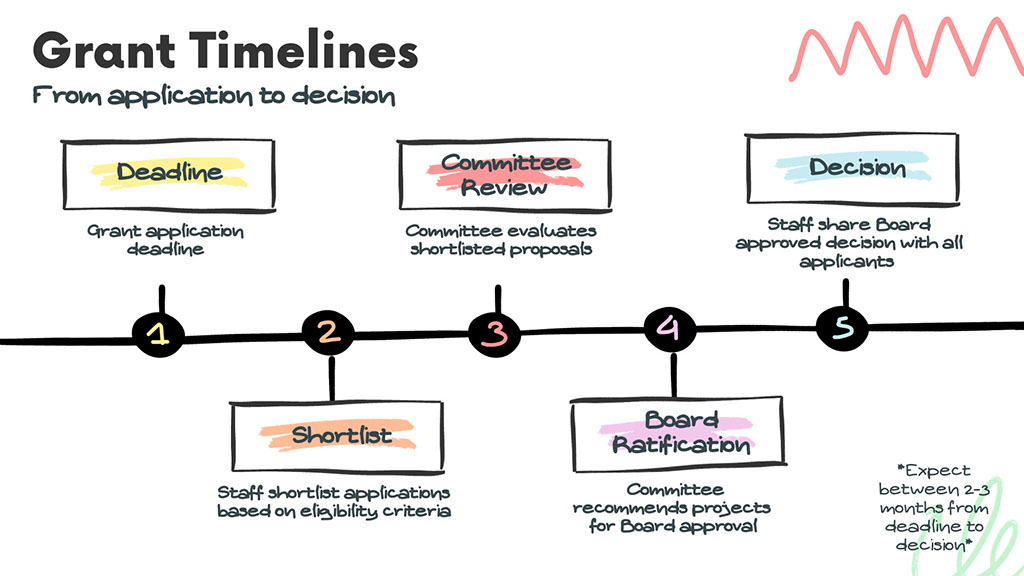
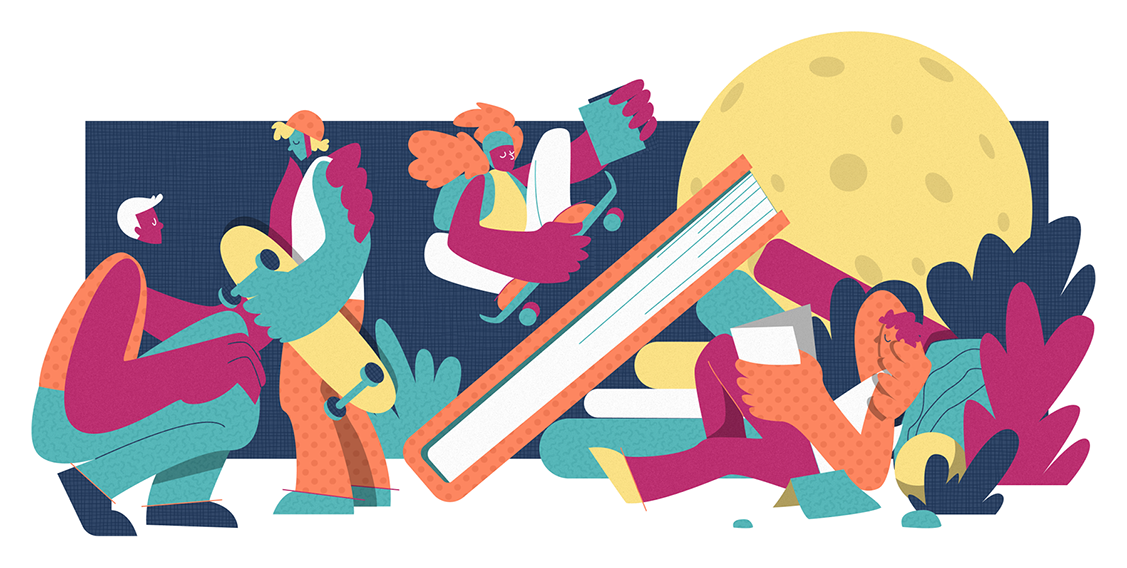
Youth Action Fund
The Youth Action Fund (YAF) provides funding to grassroots initiatives working with young people who are underserved by the education system and overrepresented in the criminal justice and child welfare systems. YAF prioritizes Black and/or Indigenous youth-led initiatives. This fund was informed by a series of consultations with experts and advocates in the field and our current strategic plan.
Congratulations to the groups that have been approved for funding in 2024.
You can get an overview of their projects by clicking here.
2020
FOR FURTHER INFORMATION
If you have any questions about the program, please get in touch at info@laidlawfdn.org
Applications are currently closed for 2024
Read Youth Action Fund guidelines for more details & FAQ
Overview +
The Youth Action Fund (YAF), as informed by our Strategic Plan, offers grants to grassroots initiatives working with youth who are underserved by the education system and overrepresented in the justice and child welfare systems. The development of this fund was guided by a series of consultations with experts and advocates in the field.
More specifically, the Youth Action Fund grants are for grassroot initiatives to develop and lead projects where they:
• Elevate priorities and voices of youth with lived experiences in the identified systems
• Promote equitable and accountable institutions and systems
• Advocate for evidence-based policy
• Support initiatives working on, or, advocating for prevention, early intervention, and crisis intervention.
• Support initiatives that are led and informed by Black and/or Indigenous youth with community buy-in
FUNDING CRITERIA +
- Initiatives must be Ontario-based
- Initiatives must demonstrate youth leadership (30 inclusive and under)
- Initiatives by Black and/or Indigenous youth must be led by Black and/or Indigenous youth, respectively
- Initiatives must address issues impacting Black and/or Indigenous youth in at least one of these three systems: Child Welfare, Criminal Justice, and/or Education
- Applicants must be grassroots groups, nonprofits, charities, or First Nations band
Priorities +
Priority will be given, but not limited to:
- Initiatives by and for Black and/or Indigenous youth that have lived experience with at least one or more of these systems: justice, child welfare, and education
- Initiatives that are Black youth-led and/or Indigenous youth-led
- Initiatives that take on a youth-centred approach
- Projects working to combat systemic racism and discrimination presented across all three systems
- Initiatives that connect services and advocacy across all three systems
- Projects that promote or develop better practices for supporting youth disadvantaged by the justice, education and child welfare
- Initiatives that work towards and advocate for systemic changes in at least one of the three systems: child welfare, education, and criminal justice
ELIGIBLE +
Initiatives must be:
• Led and informed by young people supporting youth leadership (30 inclusive and under)
• Ontario-based
• Group should be a Charity, Nonprofit, or Grassroots
• Based within the communities they are serving and/or with a proven history of working with the communities they identify
• Distant programming with First Nations must be welcomed by invitation and/or in partnership with the youth and supported by their community-based allies
GRANT AMOUNT +
The Youth Action Fund provides operating and project grants to organizations and initiatives working in Ontario. Groups can request up to $100,000 per year for up to three years.
Type of Support +
The Youth Action Fund provides operating and project grants to organizations and initiatives working in Ontario. In general, groups can request up to $100,000 per year for up to three years.
Eligible Expenses +
- Salaries, honoraria, stipends
- Transportation, food, childcare and other expenses that make project activities accessible to young people and other stakeholders
- Project materials and small equipment/technology as long as it is directly related to the project administrative costs associated with the project
Ineligible Expenses +
As a general rule, we are unable to fund:
• Fundraising campaigns
• Capital projects
• Direct financial support to for-profit enterprises
• Endowments
• Sponsorship of events and conferences
• Ongoing operating expenses unrelated to the proposed project
• Projects involving partisan political activities
• Projects involving strictly religious purposes or activities
• Projects outside of Ontario
Note: If there are any expenses you would like to include that are outside the eligibility criteria, please let us know and the Grant Committee will review and make a decision.
Applying for Funding & Key Dates +
FAQ +
What types of initiatives can be funded?
Youth Action Fund grants a variety of projects, e.g., policy & advocacy work, programs, and community-based research (research cannot be part of someone’s masters or doctorate degree). Examples of grantees can be found here.
How many Youth Action Fund grants does the Foundation intend to make through the current call for applications?
This depends on the number of eligible applications and the budget that potential grantees need to do this work. On average and during an open call year, over 100 applications are received and around 10 projects are funded.
How much can we request?
You can apply for up to $100,000 per year for a maximum of three years for a maximum total of $300,000.
We need funding to support our core activities, not a project. Can we apply to the Youth Action Fund?
No. We do not provide core funding. However, we fund core operating costs associated with a project if they are directly related to the project.
Do we need to submit audited financial statements?
No. We do not require financial statements to apply to the Youth Action Fund.
Does an organization need to be youth-led to be eligible?
No. However, the project itself needs to be entirely led by youth (30 and under). This can be done by youth staff, youth advisors, youth board members, etc. Youth who make up the group leads will essentially undertake a project on behalf of the organization.
We are a social enterprise / a for-profit business, can we get funded?
No. We do not fund for-profit entities. Additionally, we do not fund initiatives that come with a cost to the participants or activities that could generate profit (e.g., markets with vendors, event fee, program fee, fee for services, etc.)
We’re asking for funds to have our own microgrants program. Could this get funded?
No. We are unable to fund projects that give out microgrants to other participants, as well as fundraising campaigns, capital expenses, for-profit activities and business/social enterprises, endowments, sponsorship of events and conferences, partisan political activities, religious activities, and projects outside of Ontario.
We are a grassroots group, can we apply to receive funds directly?
No. Currently, the Foundation requires non-incorporated grassroots groups to partner with a registered charitable organization to act as a trustee and provide organizational mentorship and administrative support. The Organizational Mentor will receive funds to distribute to the grassroots group. Depending on capacity, one charity can be an OM for one or multiple groups. While we strongly recommend having a partnership agreement between the group and the Organizational Mentor, this is not required to apply.
What is the usual percentage for admin fees, especially if working with an Organizational Mentor? Do we have to factor admin costs into our budget proposal?
The admin fee for grassroots groups generally goes towards the OM and we don't encourage more than 10% of the budget to be allocated to this line item, which you would factor into your budget proposal. For charities, and nonprofits not working with an OM, the admin budget line can be between 10-15%.
Our project benefits Black and/or Indigenous youth but little to no one in our group shares these racial identities, would our application be competitive?
No. We do not fund projects where the “by and for” is not a structural component of the group. Echoing South African disability activists, Laidlaw espouses the “Nothing about us, without us” slogan. Black, Indigenous, and racialized youth know how best to support their own communities. We are not interested in funding projects that parachute into communities and perpetuate a saviour complex.
Which projects will get priority?
Black and Indigenous youth-led groups will be prioritized over non-Black-led and non-Indigenous-led organizations.
Read the Foundation for Black Communities’ definition of a B3 organization (Black-focused, Black-led, and Black-serving) here. Find The Circle’s definition of Indigenous-benefiting, Indigenous-informed, Indigenous Partnerships and Indigenous-led here.
Can we pay ourselves through this grant?
Yes, please! As long as salaries and honoraria only go to youth and no one above 30 gets paid. We strongly recommend paying youth staff at least a living wage within your area. You can find rates as calculated by Living Wage Ontario. Applicants can opt to do salaries or hourly wages for staff and honoraria for participants - whichever method works best for your group.
Am I able to accept a grant if I’m currently on ODSP?
Folks can keep their ODSP benefit while gainfully employed. Earnings are capped at $1,000 per month on top of what you receive from ODSP. In 2022, the ODSP earning cap increased from $200 to $1000 per month. For every dollar earned past the $1,000 cap, ODSP claws back $0.75. After the $1,000/month cap, you are entitled to $10,000 in-kind compensation annually. Visit ontario.ca/page/ontario-disability-support-program. If you have questions regarding programming and ODSP, contact the Program Director.
Will letters of support increase the strength of our application?
We don’t require letters of support, however, providing recent youth testimonials vouching for the initiative could increase the validity of your application. We are more interested in youth validation over institutional validation so providing letters of support from adults/school boards/institutions does not necessarily strengthen applications.
We understand that the Foundation will not fund capital expenditures. Is computer equipment considered to be capital expenditures?
We will not fund capital expenditures for immovable assets (i.e., buildings, furniture, infrastructure, land, etc.). Small equipment including tech equipment relevant to the project could be included in the budget.
What do you mean by youth-led initiatives?
Laidlaw funds projects that are envisioned, developed, led, and implemented by young people (30 and under, at time of application). The image below presents eight levels of youth participation that start from manipulation and tokenism at the lower rungs, to full participation at the top. Youth Action Fund focuses on groups within Rung 7, meaning little to no input from adults - e.g., only paying salaries and honoraria for youth (30 and under), no projects that are adult-directed or ideated where youth only implement or participate, and no projects that don’t have enough Black and Indigenous youth with lived experiences of the system(s).
E.g., A mentorship program where youth will benefit from one-on-one coaching with mentors who will get an honoraria but the mentors are over 30 would not be seen as youth-led as the dynamics become top-down knowledge transfer from adult-to-youth.
What are some common mistakes applicants make when submitting proposals?
Here is a non-exhaustive list of general mistakes people tend to make when applying:
• Forgetting to mention group leads’ lived experience of the system(s), ages, and racial identity
• Parachuting into a community and perpetuating saviourism
• Passion doesn’t come through or has been diluted
• Plan & budget don’t match, no budget line breakdown, or enough details
• Alignment to the system(s) is not strong enough
• Project isn’t youth-led but just youth-serving
• Not reading the FAQs, guidelines, and eligibility criteria
• Non-youth (over 30) write the application and are the only group’s contact
• Youth group leads writing the application don’t attend the info session
We got funding from Laidlaw before, does this affect our new grant application?
Applications are evaluated on merits. Previous Laidlaw funding has no bearing on new applications unless you are a current grantee, and you’re seeking support for the same project and activities. If that’s the case, you’ll need to communicate clearly how your new application will build on your learnings from the previous project.
N.B.: If it comes down to a decision between a project/organization that is currently being funded vs. one that isn’t, reviewers might opt for the one that has not yet gotten a Laidlaw grant.
What do you mean by the justice, child welfare, and education systems?
While justice could be understood as social justice, child welfare as the wellbeing of children, and education as learning - YAF seeks initiatives operating specifically within, or, as an alternative to the legal/criminal, foster care, and education systems. For all three systems, we understand that while some work within institutions, others will seek to offer alternative systems. Both approaches are acceptable.
We understand how youth can have lived experiences in the criminal and child welfare systems. Can you explain what you mean by education?
Projects focusing on education should be by and for Black and Indigenous young people having lived experience with the education system, e.g., being pushed out of the system, being at higher risk of, or already impacted by, streaming, suspensions, detentions, expulsions, lack of access to post-secondary education, etc.
N.B.: YAF seeks projects by and for young people impacted by the education system rather than broader projects seeking to educate or raise awareness.
Can our project focus on multiple regions or does it have to be only one?
Yes. Projects can focus on an individual or multiple regions, neighborhoods, and/or cities within Ontario. All activities and expenses must be conducted in Ontario. Laidlaw is a province-wide funder and cannot fund initiatives outside of ON, partial activities in a different province or region, nor salaries for staff outside of the province.
How do we submit an application?
Submit an application online through Foundant, the Foundation’s online grant management portal. If you have limited access to the internet, you can contact us and request an oral application process or submission via email.
When using the portal, can we leave the application unfinished and return to it later?
Yes. Your application will remain in draft form until you hit submit. You can return to your draft application at any time. Try not to leave the application in draft until the last minute as the system times out.
On deadline day, can we submit our application past deadline time?
No. Foundant times out as soon as the deadline time hits (e.g. 5PM). If you don’t submit before the time, your application will stay in draft and not go through evaluation. There is usually a 30-mins grace period built into the system (e.g., 5:30PM) and due to the volume of applications, making exceptions to submit after the deadline will not be possible.
What happens after we submit an application?
• You will receive an email confirming receipt of application.
• Laidlaw staff review each application for eligibility.
• Strong eligible applications that align well with the Youth Action Fund priorities will be shared with the Granting Committee (GC).
• If we and/or the Granting Committee have follow-up questions about your application, we will reach out.
• The GC reviews shortlisted applications and then meets to consider them. Together, they decide which projects to recommend for funding.
• The GC recommends projects to the Foundation’s Board for ratification.
• Following the Board’s ratification, we will contact you to share decisions made.
How do I learn about the outcome of my application?
After a decision is reached on your application, you will receive an email notification. We do not release results by phone unless you went through an offline application process.
How long will it take to find out the outcome of my application?
In general, expect 3 months from deadline to decision. Applications go through a series of evaluation:
Our grant application has been approved – what happens next?
Congratulations! You will be asked to review and sign an agreement, which may have special conditions attached that are specific to your grant. Generally, the first installment is paid soon after the receipt of the signed agreement and the remaining installments are paid according to the payment schedule drawn up to suit your particular project.
What is a payment schedule?
A payment schedule outlines dates and grant amounts made to your group by the Foundation for the approved budget. It is developed by taking into consideration the information provided in the work plan, and often also in consultation with the grantee.
Our application did not get accepted. Is there somewhere I can get feedback?
You can contact us directly. We will provide you with feedback on your application based on Granting Committee deliberations.
What happens if COVID-19 impacts my project?
YAF grantees are encouraged to see which activities could be conducted virtually i.e., over Zoom or other similar platforms. We also approve budget reallocations to allow for the purchase of equipment for online communication, where possible.
What adjustments will the Foundation make during the pandemic?
Laidlaw adjusted monitoring of grants and program delivery to reduce additional stress. Funds should still align with the focus of the grant, however, flexibility will be extended for budget reallocation, project deliverables, granting deadlines, and project start dates. If you need to change project plans or make other adjustments to your grant, please reach out to us to discuss.
We have some questions. Who can I contact?
For more information, please contact the Director of Grants & Community Initiatives, Aldeli Albán Reyna, at aalbanreyna@laidlawfdn.org.
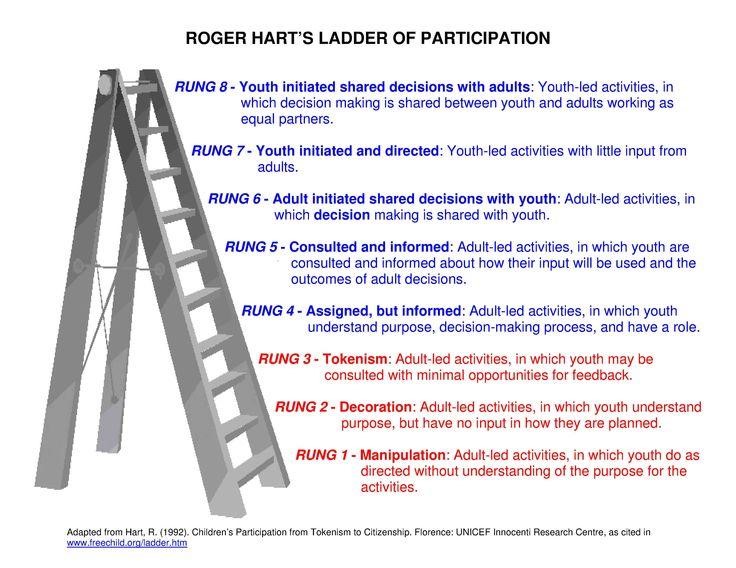
Indigenous strategy
We are committed to being more visible and intentional in our work with Indigenous communities and in our efforts to support action on the recommendations from the Truth and Reconciliation Commission. At the core of this Indigenous Strategy, the Foundation’s efforts will:
• Invest in young people and youth-driven groups within an intergenerational framework
• Support cross-cultural learning and understanding of how racism and colonization
continues to shape Indigenous and non-Indigenous relationships
• Commit long-term by carrying the strategy into our next strategic plan
• Be guided by Indigenous priorities and informed by Indigenous communities
LEARN MORE
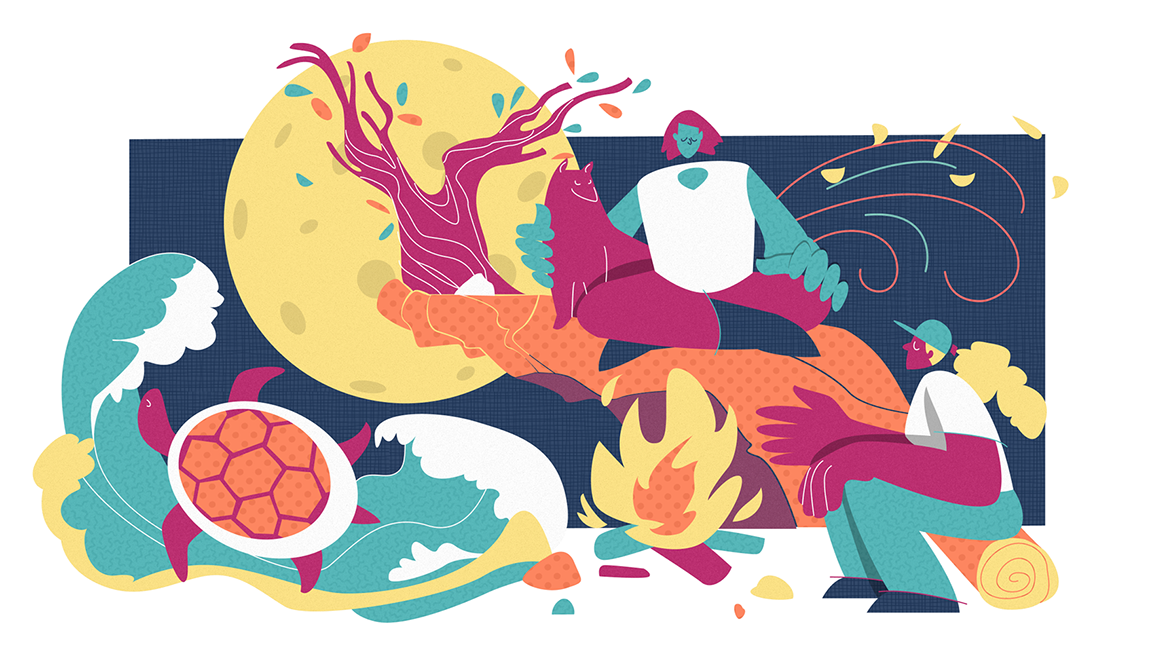
Indigenous Youth
& Community Futures Fund
Through the Indigenous Youth & Community Futures Fund (IYCFF), we invest in opportunities for Indigenous youth to connect with their land, languages and cultures, and strengthen and deepen their relationships within and across Indigenous communities. We also support the transmission of cultural practices and knowledge to future generations.
Congratulations to the groups that have been approved for funding in 2024.
You can get an overview of their projects by clicking here.
See previous IYCFF cohorts:
2020
See previous IYCFF cohorts:
2021
See previous IYCFF cohorts:
2022
See previous IYCFF cohorts:
2023
FOR FURTHER INFORMATION
If you have any questions about the program, please get in touch at info@laidlawfdn.org
Overview +
Overview of the Fund
Through the Indigenous Youth & Community Futures Fund (IYCFF), we invest in opportunities for Indigenous youth to connect with their land, languages and cultures, and each other. We want to support change-makers to engage in acts of decolonization, nation and community building and cultural resurgence.
Objectives +
More specifically, the IYCFF grants are for Indigenous youth to develop and lead projects where they:
• learn about and are immersed in their lands, languages, rights, laws and cultures
• participate in acts of resurgence, reclamation and cultural care
• build relationships within and across diverse Indigenous communities and nations
• address environmental racism and promote sustainable relationships with the land and water.
Eligibility +
This call is open to Indigenous youth-led groups that are based in remote, rural and urban territories spanning Ontario. This means the organization, project leads and project activities should be located in Ontario. A youth-led group is a project that has been developed by and will be led by at least two Indigenous young people 35 years and under. We also welcome groups with adult allies, community members, elders or knowledge keepers playing supportive roles as long as young people, who self-identify as Indigenous Peoples, come up with the project idea and lead the project. Our grant is inclusive of First Nations, Métis, Inuit, Afro-Indigenous, 2SLGBTQ+ and disabled young people.
Projects could include:
• Land-based learning opportunities and land stewardship like seed planting, community gardens, harvesting, etc.
• Environmental justice initiatives such as climate action, and Indigenous land and water protection
• Language immersion opportunities
• Culture camps or culture-based education that includes ceremonies, medicines, arts, and sciences
• Social justice, law and rights-based education
• Healing, life promotion and community building
• Other projects that communities deem important to support decolonization reconciliation, nation-building and cultural resurgence
Funding +
You can apply for up to $30,000 for small-scale projects that can last between 6 to 12 months. Please note that due to the number of applications we receive and the limited funds available, grants awarded may be smaller than the amount requested.
If your group was a past 1-year IYCFF grantee, you may apply for a maximum of $30,000 per year for up to two years, for a maximum total of $60,000. However, first-time IYCFF applicants, or those who have not successfully completed a one-year project, may only apply for a one-year grant, with a maximum amount of up to $30,000.
Eligible Expenses +
You can apply for funding to cover:
• Expenses associated with project activities and project materials
• Administrative costs (up to 5%)
• Small equipment and technical costs or fees to carry out the proposed project
• Transportation, food, and childcare expenses for project staff and participants
• Salaries and honorariums for Youth Staff, Elders, Knowledge Keepers and Facilitators
(Please contact us If you’re not sure whether the expenses you anticipate would be eligible for funding or not)
Ineligible Expenses +
As a general rule, we are unable to fund:
• Purchase of land or real estate
• Capital expenses for immovable assets, i.e. buildings
• Fundraising campaigns
• Endowments
• Scholarship and bursaries
• Direct financial support to for-profit enterprises
• Cultural tourism and participating in powwow competitions (as opposed to hosting a powwow)
• Projects involving partisan political activities
• Projects involving strictly religious purposes or activities. Please note that we do not consider Indigenous ceremonies to be religious purposes.
• Salaries for non youth led organization and groups
Applying for Funding & Key Dates +
HOW TO APPLY +
To Apply
1. Review the Indigenous Youth and Community Futures Fund Guidelines to determine if you meet the eligibility criteria.
2. Create an account on our online grant management portal to access the application form.
Applicants with Limited Internet Access
Applications are submitted in writing through our online portal; however, if submitting your application through the online portal is not a possibility due to inadequate internet access, please see below for a link to the application in Word.
Here is the link to the Word version of the application.
Please share the completed application to abernard@laidlawfdn.org
Oral and Video Submissions
We recognize the significance of oral transmission of stories, histories, lessons and other knowledge to sustain identities for Indigenous communities. In keeping with this, we accept oral, video or powerpoint submissions. Video submissions can be uploaded onto the online portal. However please get in touch with us to request an oral application process.
You can download the application form here.
ORGANIZATIONAL MENTOR +
Organizational Mentor (OM)
An Organizational Mentor (OM) can offer newly incorporated, unincorporated grassroots, youth-led groups and non-profit organizations with administrative support, project mentoring, governance and financial accountability. While working with an OM is not mandatory, grantees who do so receive larger installments and are not required to provide receipts and invoices. Additionally, an OM can provide ongoing support throughout your project beyond a mere transactional relationship. To learn more about OM services, please review our Organizational Mentor Booklet.
FAQ +
Who can apply for grants through the Indigenous Youth Community and Futures Fund?
The IYCFF program supports Indigenous, youth-led groups that are based in traditional territories spanning Ontario. This means the organization, project leads and project activities should be located in Ontario. We acknowledge the hard work of adults, aunties, uncles and other older community members, however the application will be stronger if coming directly from the youth.
What’s an Indigenous, youth-led group?
Young people, who identify as Indigenous Peoples, came up with the project idea and will lead the project with community mentors and/or Elders playing supportive roles as needed and defined by youth. Youth-led is intergenerational, as often there are members older or younger that play important roles in the work. The key thing is that Indigenous, young people under the age of 35 are at the core of decision-making and leadership.
Can an unincorporated group apply for a grant?
We welcome applications from unincorporated groups.
We are a social enterprise/ a for-profit business, can we get funded?
No. We do not fund for profit entities. Additionally, we do not fund initiatives that come with a cost to the participants or activities that could generate profit (e.g., markets with vendors, event fee, program fee, etc.)
Why am I being asked to provide proof of my First Nation/Métis/Inuit Citizenship?
To protect Indigenous grantees and ensure equal access, we require proof of Indigenous identity for the youth leads on the project only. Not everyone involved in the project needs to provide ID.
If you do not have a copy of your status card or Métis membership or Inuit beneficiary card, please upload a letter from your First Nation or community or Indigenous organization confirming your connection.
We understand that the Foundation will not fund capital expenditures. Is computer equipment considered to be capital expenditures?
We will not fund capital expenditures for immovable assets (i.e., buildings, furniture, infrastructure, etc.). Small equipment including tech equipment relevant to the project could be included in the budget.
What are the IYCFF grants designed to support?
The IYCFF grants are for projects that provide opportunities for Indigenous young people to increase or regain access to their culture, land and languages; strengthen and deepen relationship building within and across diverse Indigenous people and communities; address environmental racism and promote sustainable relationships with the land and water and support the transmission of cultural practices and knowledge to future generations. Some examples include Indigenous language projects such as running language immersion classes in the community; land- and culture-based projects for Indigenous youth to increase their knowledge of and access to traditional skills and teachings, such as culture camps organized by Indigenous youth with the support of their community members, Elders and knowledge keepers.
Which projects will get priority?
Projects located in remote areas or northern Ontario will get priority. As well, Indigenous-led organizations will take priority over non-Indigenous-led organizations.
An Indigenous-led organization is defined as having Indigenous identity at the center of the organization’s programming. As well, the majority of the governance structure is held by Indigenous people including their executive, senior and staff level. To read about The Circle’s definition of Indigenous-benefiting, Indigenous-informed, Indigenous Partnerships and Indigenous-led please click here.
What is the amount we can request?
You can apply for up to $30,000 for small-scale, short-term projects that can last between 6 to 12 months. IYCFF applicants that have successfully completed a one year grant can apply for multi-year funding of $30,000 per year for a two year period, totaling up to $60,000.
We need funding to support our core activities, not a project. Can we apply to the Indigenous Youth Fund?
No. We do not provide core funding. However, we fund core operating costs associated with a project if they are directly related to the project.
We’ve already received funding from Laidlaw before. How does this affect our new grant application?
Every application is evaluated on its merits. Previous funding status has no bearing on your new application unless you have an active grant (your project is still going on), and you’re seeking support for the same project and activities. If that’s the case, you’ll be asked to communicate clearly how your new application will be building on your learnings from the previous project.
How do we submit an application?
You can submit an application online or via email or paper mail if you have limited access to the internet. You can also submit an oral, video or powerpoint application. For online submissions, you have to create an account on Foundant, the Foundation’s online grant management portal.
When using the online portal, can we leave the application unfinished and return to it later?
Yes. Your application will remain in draft form until you hit submit. You can return to your draft application at any time.
What happens after we submit an application?
• We’ll send you an email confirming receipt of your application.
• We will review each application and create a shortlist.
• Applications that meet the eligibility criteria and align well with the priorities of the IYCFF program will be shared with Laidlaw’s Indigenous Advisory Committee.
• If we and/or the Indigenous Advisors have follow-up questions about your application, we will let you know.
• The Indigenous Advisors will first conduct individual reviews of the shortlisted applications and then meet in person to consider each application. Advisors will decide together which projects should be recommended for funding and the amount of funding that should be provided.
• The Indigenous Advisors recommend projects to the Foundation’s Board for ratification
• Following the Board’s ratification, we will get in touch with you to share information about the decisions made about your application.
What is the decision-making process? How do you decide which projects to fund?
The IYCFF grants are assessed by an advisory committee made up of Indigenous young people and community members. After reading all grant applications that meet the eligibility criteria and align with the Fund’s priorities, the Indigenous Advisory Committee meets as a group to discuss, score and award grants with the support of the IYCFF Program Director. Projects that are recommended for funding by the Advisory Committee are then forwarded to the Foundation’s Board of Directors for ratification.
How many advisors sit on the Committee?
The Indigenous Advisory Committee currently consists of six individuals. You can read about their work here.
How many Indigenous Youth Fund grants does the Foundation intend to make through the current call for applications?
This depends on the number of eligible applications and the budget that potential grantees need to do this work. We’ve made 24 grants over the past year. You can see the list of approved grants from 2024 here.
How do I learn about the outcome of my application?
After a decision is reached on your application, you will receive an email notification. We do not release results by phone unless you went through an offline application process.
Our grant application has been approved – what happens next?
Congratulations! You will be asked to review and sign an agreement, which may have special conditions attached that are specific to your grant. In general, the first installment is paid soon after the receipt of the signed agreement and remaining installments are paid in accordance with the payment schedule drawn up to suit your particular project.
What is a payment schedule?
A payment schedule outlines the dates and grant amounts made to you by the Foundation for your approved budget. It is developed by taking into consideration the information provided in the work plan, and often also in consultation with the grantee.
Our application did not get accepted. Is there somewhere I can get feedback?
You can contact the IYCFF Program Director. They will provide you with feedback on your application based on the Advisory Committee deliberations.
Am I able to accept a grant if I’m currently on ODSP?
Folks can keep their ODSP benefit while gainfully employed. Earnings are capped at $1,000 per month on top of what you receive from ODSP. In 2022, the ODSP earning cap increased from $200 to $1000 per month. For every dollar earned past the $1,000 cap, ODSP claws back $0.75. After the $1,000/month cap, you are entitled to $10,000 in-kind compensation annually. Visit ontario.ca/page/ontario-disability-support-program. If you have questions regarding programming and ODSP, contact the IYCFF Program Director.
What happens if COVID-19 impacts my project?
safety measures are followed. To get the latest updates and learn more on how to protect yourself and others, please click here. Please reach out to the Laidlaw Program Director if you have any questions.
If there is another lock down, the IYCFF grant recipients are encouraged to look at their project plans and see which activities could be conducted virtually ie. Zoom. The Foundation will also approve the reallocation of budgets to allow for the purchase of equipment for online communication where possible.
What adjustments will the Foundation make during the pandemic?
During these uncertain times, Laidlaw Foundation has made adjustments to the monitoring of grants and program delivery to reduce any additional stress. Funds awarded to Grantees should still align with the focus of the grant, however, flexibility will be extended regarding budget reallocation, project deliverables, granting deadline and project start dates. Should you require changes to your project plans or need to make other adjustments to your grant, please be sure to reach out to us to discuss.
We have some questions. Who can I contact?
For more information, please contact the IYCFF Program Director, Amanda Bernard, at abernard@laidlawfdn.org
PopUp Grants #PUG
This annual microgrant is being transitioned out, see below for more details.
As Laidlaw’s current strategic plan for 2019-2024 wraps up, the PopUp Grants, an annual microgrant stream for youth groups and grassroots organization, also comes to a close.
For the next five years, Laidlaw will continue to make the shift to prioritize investing in Black and Indigenous youth-led work. Stay tuned for new and improved funding opportunities in the 2025-2030 strategic plan!

Impact Investing
The Global Impact Investing Network defines impact investments as investments made in companies, organizations and funds with the intention to generate social and environmental impact alongside a financial return. The term “impact investing” was coined by the Rockefeller Foundation in 2007, creating a movement and bringing together a community of investors that were already working to address social and environmental challenges through investments that also deliver financial returns. Over a decade later, there has been significant growth in the industry with more individuals and institutions entering the space and large amounts of capital flowing into the market.
LEARN MORE
